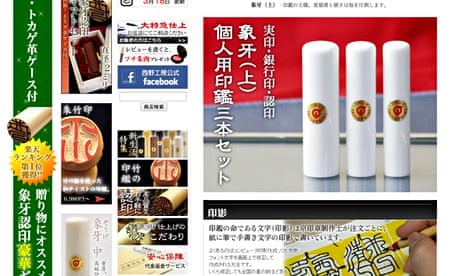According to a recent study by TRAFFIC (a joint project of the World Wildlife Fund and International Union for Conservation of Nature), the illegal ivory trade has increased 300% from 1998 to 2011. Much of that growth has doubtless been facilitated by the internet, owing to its convenience and historically weak regulations. The exact extent of the online illegal wildlife trade is unknown, however. “Internet commerce is a relatively new route for such trade. In 2007, the CITES Secretariat asked Parties to collect information on internet wildlife trade and report problems and implemented regulations. The reports indicated it was difficult to even approximate the influence of e-commerce on CITES-listed species.” Nonetheless, the available evidence suggests that the internet is a popular conduit for the illegal wildlife trade.
The International Fund for Animal Welfare has conducted various investigations into the online illegal wildlife trade for over a decade. Just last month, the IFAW published a new report “Wanted–Dead or Alive”, and it shows how the illegal wildlife trade is still rampant on the internet.
Their latest report represents the most extensive survey of illegal wildlife products on the internet. In only a 6-week period in early 2014, the IFAW uncovered a staggering 33,000 live animals and animal products for sale on 280 sites across the 16 target countries investigated. In sum, these products total an estimated $11 million. If that figure doesn’t sound impressive, consider that the illegal wildlife trade at large is worth an estimated $19 billion a year according to the Association of Southeast Asian Nations (ASEAN)’s Wildlife Enforcement Network.
One third of the listings reviewed advertised ivory products–or items suspected to be ivory sold under various euphemisms, like “ox-bone”. Chinese sites were the most complicit in the ivory trade, with ivory products comprising roughly 80% of the listings. There is hope for future progress, however. In an October conference, several prominent Chinese internet companies vowed to stop the online trading of wildlife products and asked that the Chinese public boycott companies that profit from that trade. So here’s to hoping the next IFAW report observes a decrease in ivory supply on Chinese sites.
Previous IFAW investigations similarly prompted eBay to adopt a global ivory ban on its sites, and according to this most recent report, the ban seems to be effective. “The number of suspected ivory advertisements found on the eBay site in Canada dropped from 134 in 2008 to eight in 2014, and in France from 192 to just seven, while in Germany they decreased from 39 to 17.” The UK eBay site was the sole exception; there, offending listings increased by 48% since 2008. This underscores the importance of coupling the ban with stringent and proactive enforcement.
As part of the investigation, IFAW forwarded 1,192 listings to law enforcement for review. These listings were those IFAW investigators found most legally dubious. “While it is not possible to determine the legality of each item provided to law enforcers based on the information available to the investigators,” the report says, “IFAW shared this information with enforcers because it believes that it could inform or be used as the grounds for future police or customs criminals investigations.”
Extensive though the IFAW report was, it failed to include Japan among the 16 countries surveyed. And this seems like a curious omission in light of another recent report on the Japanese-based e-commerce site Rakuten.
 Rakuten is the largest online retailer of ivory products. While the company is less well-known here in the United States, Rakuten is a major player in e-commerce globally. The multi-billion dollar company has some 225 million members and several notable acquisitions, including Buy.com and Ebates.
Rakuten is the largest online retailer of ivory products. While the company is less well-known here in the United States, Rakuten is a major player in e-commerce globally. The multi-billion dollar company has some 225 million members and several notable acquisitions, including Buy.com and Ebates.
In their 2014 “Blood E-Commerce” report, the Environmental Investigation Agency found that Rakuten advertised 28,000 ivory products and 1,200 whale products. Rakuten ultimately banned the latter in April, on the immediate heels of both this report and after the International Court of Justice ruled Japan’s so-called “researching whaling” in the northern Pacific illegal. The sale of ivory, however, is still permitted on its website.
The vast majority of ivory products on Rakuten are hankos, which are personal seals that are popularly used to sign or stamp official documents. Another notable ivory item selling on Rakuten at the time of the EIA report was a large carved tusk for 3 million yen.
Rakuten lags far behind its competitors where wildlife protection is concerned. eBay instituted the aforementioned ban on ivory in 2008 and, coupled with diligent enforcement, dramatically reduced the presence of ivory on the site. And while Rakuten’s ban on whale products should be lauded, many of its Japanese competitors, like grocers Ito–Yokado and Seiyu, quit selling whale products years ago.
Having successfully lobbied Rakuten to end its whale products, activists are now calling upon Rakuten to ban its sale of ivory. The EIA has launched an internet campaign that calls upon people to, among other things, write Rakuten CEO Hiroshi Mikitani and leave a “comment of protest” on the companies various social media profiles.

Leave a Reply